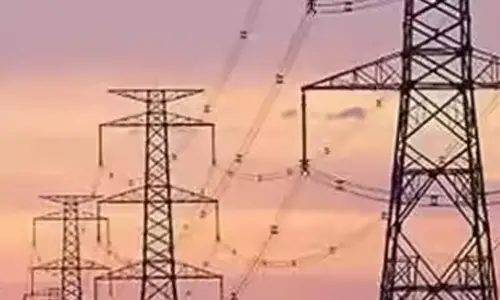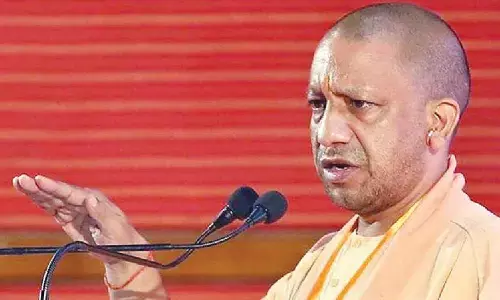Farmers' welfare in corporate grip

Farmers’ welfare in corporate grip
The free market law introduced by the Central government would do a great harm to the farming community. The new law would certainly increase the profits of the middlemen, traders and the corporate companies, forget about profits to the farmers
The free market law introduced by the Central government would do a great harm to the farming community. The new law would certainly increase the profits of the middlemen, traders and the corporate companies, forget about profits to the farmers. The central government had opened the flood gates of the agriculture to the corporate sector, as it had been doing in every other sector, which are already given to the corporate companies. Prime Minister Narendra Modi had given a call to the farmers recently, promising to double their income by 2022 and also assured them of a comfortable India, where everyone can have peace of mind in all aspects.
If this statement is true and if it is to be believed, the Prime Minister would not have brought these new legislations to cripple the farming sector in the country. These laws are not progressive and revolutionary as Modi is claiming. They don't intend to bring richness to the farmers as Home Minister Amit Shah claims. They blow a death knell to the farmers in reality.
The way these legislations were made is not a healthy parliamentary practice. The government acted in haste and adopted dictatorial form in passing them in the Parliament, without conceding the demand of the opposition parties send the bills to the select committee. It did not even allow debate in the House. Though agriculture is a state subject, the Centre did not even consult the states before making this law much against the federal spirit of the country.
The first law gives freedom to the farmers to sell their produce anywhere in the country. The second law is to give legal guarantee to the agreements that farmers reach with the traders. The third law is lifting ban on the storage of millets, pulses and oilseeds. The central government talks big about the benefits of these three laws to the farmers. But the facts are otherwise.
Is it practically possible for the small and medium farmers to take their produce to the city or other state? Are our farmers educated enough and have money and other resources to sell their produce in other markets? Can a farmer holding two acres take his produce to a market away from his village and sell it? Who will pay him the transport charges? Can this farmer mange the market forces? Can he bargain with the market forces? What if he fails to get even the transport cost? All these laws are aimed at weakening the local market committees and empower the corporate sector. This would make the farmers sacrificial goats.
The market forces have been cheating the farmers even in the local market yards by suppressing the demand and thus bringing down the price. The farmers are not even getting the minimum support price. Instead of giving them the MSP guarantee, leaving the market to the corporate sector and the traders would do no good to the farmers. The laws would also take away the right of the farmers to complain against the non-payment of the MSP.
Coming to the issue of lifting of ban on storage of essentials like pulses, spices, it is for sure that the traders will buy the produce at the time of yield at lesser price and stock them, and create artificial demand for them to make greater profits. The government has no mechanism to control this gambling by the traders and the corporate companies, who can store the essential commodities creating artificial scarcity. The government fails every time when the market forces create artificial scarcity when there is a ban on storage. Now, with the ban lifted, the government would not be in a position to check the market and make the essential commodities available to the people.
The BJP leaders who have come to power by promising to implement the recommendations of the Swaminathan Commission are wasting their time and energies and resources of the country by making useless and meaningless laws and decisions. These laws would jeopardise the food security and security of the farmers in the country.
If the Central government is sincere and honest to help the farmers, it should take measures to ensure MSP for every crop. This is what the farmers across the country have been asking for decades. The government, if it is farmer-friendly, should give MSP to the farmers, buy their crop and pay their money directly into their bank accounts.
(The author is Member of APCC Coordination Committee)









